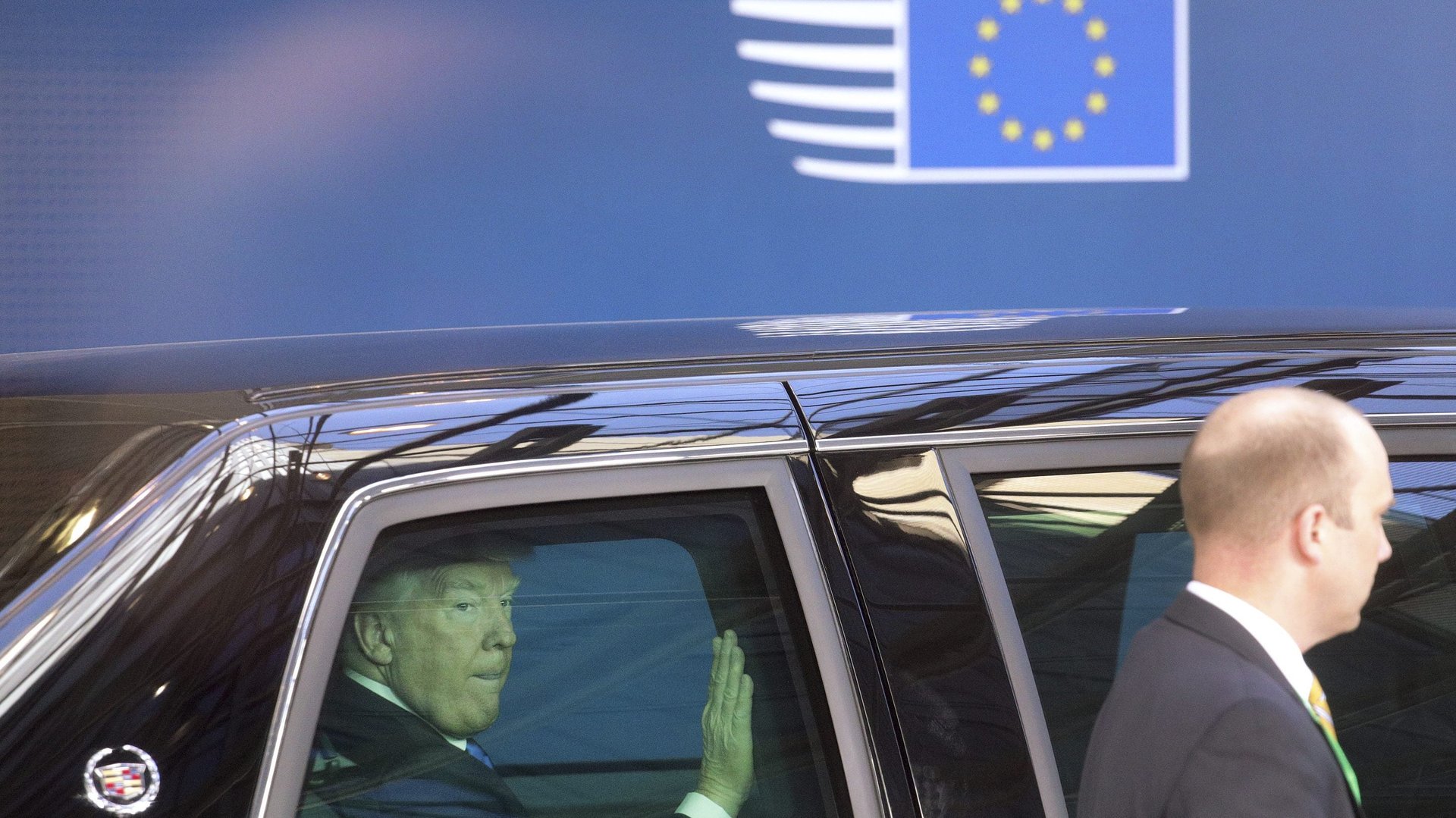Being the anti-Trump is the must-have look at this week’s UN general assembly
US president Donald Trump’s isolationist speech at the UN general assembly yesterday has created what marketing types would call a positioning opportunity in the geopolitical space—or in other words, a scramble to be the next leader of the free world. Yesterday it was French president Emmanuel Macron. Today Iranian president Hassan Rouhani peppered his UN speech with mentions of “moderation” in contrast to Trump’s emphasis on “sovereignty.” And now Brussels is getting in on the game too.


US president Donald Trump’s isolationist speech at the UN general assembly yesterday has created what marketing types would call a positioning opportunity in the geopolitical space—or in other words, a scramble to be the next leader of the free world. Yesterday it was French president Emmanuel Macron. Today Iranian president Hassan Rouhani peppered his UN speech with mentions of “moderation” in contrast to Trump’s emphasis on “sovereignty.” And now Brussels is getting in on the game too.
Federica Mogherini, the EU’s foreign-affairs chief, made no bones in a speech today at the Bloomberg Global Business Forum about Brussels’ differences with the Trump administration. “It’s clear that the policies in Washington have shifted, and this has brought us to a new reality,” she said. “If the Americans, — or if the president of the United States, rather — takes a different stand, we are mature friends enough to say, ‘We don’t agree, we stay friends. We continue to work together in other fields. But we have a different view.’ “
Mogherini was unabashed about chiding Trump for his threat to “totally destroy” North Korea if provoked. “We [Europeans] don’t talk about destroying countries. We talk about finding peaceful solutions,” she said. “We believe the peaceful solution is the only one that is really available… There are tens of millions of Koreans in the North and in the South that would be the first victims of any military option.”
Reflecting on Trump’s focus on American “sovereignty” in his speech (he used the word 21 times), she argued that it doesn’t mean ending multilateralism: “Our union [the EU] is a union of sovereign states,” she said. Her speech seemed to calculatedly push Europe forward as an alternative world leader: “The rest of world is now looking at Europe for leadership. And we can do it.”
That divergence from the US extended—albeit very tentatively—to security matters. Seemingly alluding to Trump’s threat to leave NATO if Europe doesn’t step up its military investments, Mogherini acknowledged that it was “important…that Europeans start to invest better on defense.” However, she presented that not as a way to keep the US from leaving NATO but to give Europe “strategic autonomy that, potentially, we … could need to use.” The not-so-subtle message: Europe is preparing for a military future without America. Deliberately or not, it echoes a hint German chancellor Angela Merkel gave in May, after Trump seemed to be weakening the US’s support for NATO.
Finally, Mogherini sharply differentiated the EU from Trump on what security means in general. “For us Europeans, when you talk about defense and security… [you] never talk only about [the] military,” she said. “For us, investing in the World Food Program is a way of investing in our own security. Investing in peacekeeping in Africa is a way of investing in our own security, investing in other nations is way to invest our own security, in development, in climate change.”
Macron had taken a similar line in his speech, calling the fight against terrorism “educational, cultural, and moral” as well as military, whereas Trump talked about “crush[ing] the loser terrorists.” The transatlantic rhetorical divide has rarely been more marked.
Note: Some of the quotations in this story were initially based on a rush transcript and have been corrected.